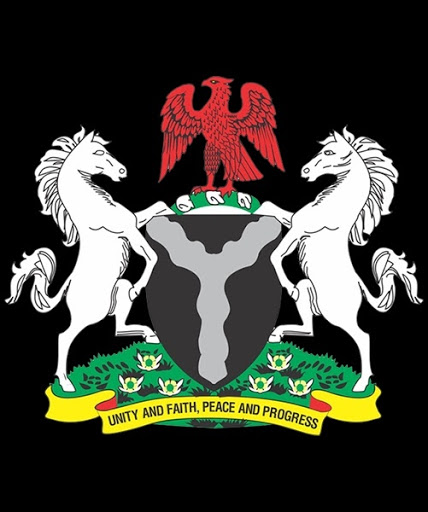In recent years, Nigeria’s leisure and recreation industry has witnessed a remarkable transformation, with growing interest in entertainment, tourism, and wellness experiences. As the nation’s middle class expands and disposable income increases, there has been a notable shift toward the pursuit of leisure, not only as a form of relaxation but also as a source of economic growth.
The burgeoning industry now encompasses a wide range of activities, including hospitality, sports, cultural festivals, and nature retreats, with both local and international audiences showing increasing interest. However, while the potential is immense, the sector remains largely untapped.
A Booming Industry on the Rise
Nigeria, Africa’s largest economy, is home to a young and vibrant population that is gradually embracing diverse leisure activities. Urban centers like Lagos, Abuja, and Port Harcourt are witnessing a surge in recreation hubs, including amusement parks, resorts, art galleries, and cinemas.
The demand for outdoor and adventure tourism, such as hiking in the hills of Obudu or exploring the mangrove swamps of the Niger Delta, is rising as Nigerians seek novel experiences. Additionally, wellness retreats offering yoga, spa treatments, and nature-inspired therapies are carving a niche in the leisure market, signaling a shift towards health-conscious lifestyles.
This shift in leisure preferences is further bolstered by Nigeria’s growing event culture. Annual festivals, such as the Calabar Carnival and the Lagos International Jazz Festival, attract thousands of tourists, contributing significantly to the economy. Likewise, entertainment events like music concerts, comedy shows, and art exhibitions have become central to Nigeria’s cultural fabric, with these events also serving as major revenue drivers for local businesses.
The Economic Potential
The economic potential of Nigeria’s leisure industry cannot be overstated. According to recent reports, Africa’s leisure and tourism market is expected to grow exponentially in the coming years, with Nigeria positioned as one of the key players. T
he Nigerian government, recognizing this opportunity, has outlined plans to invest in infrastructure that will support tourism and recreation. This includes improvements in road networks, airports, and hospitality facilities in tourist-prone regions such as Cross River, Ekiti, and Ogun States.
Leisure has also become a critical driver of job creation. From hospitality workers in hotels and resorts to event planners and tour operators, the industry is providing thousands of jobs for Nigerians. The entertainment industry, particularly Nollywood and Nigeria’s music scene, has not only brought international recognition but has also become a significant employer, feeding into the broader leisure economy.
Challenges Holding Back Full Potential
Despite its growth, Nigeria’s recreation industry faces several challenges. One of the most significant barriers is the lack of adequate infrastructure. While major cities enjoy access to recreational facilities, rural areas with vast tourism potential are often overlooked due to poor roads, lack of accommodations, and minimal government investment. This hinders the growth of eco-tourism and cultural tourism, which have the potential to draw international visitors and create sustainable local economies.
Another pressing issue is security. Tourists, both local and foreign, are often deterred by concerns over safety, especially in regions affected by insurgency or unrest. Additionally, the high cost of domestic travel compared to international destinations also discourages many Nigerians from exploring local tourist spots.
Furthermore, while the government has made strides to promote tourism, there is still a lack of coordinated marketing and promotion. Potential tourist destinations are under-advertised, leaving many Nigerians unaware of the natural and cultural gems within their borders. For instance, Nigeria’s rich history, embodied in UNESCO heritage sites like the Osun-Osogbo Sacred Grove, remains largely untapped as a tourist destination due to poor marketing.
Unlocking the Potential
To fully unleash the potential of Nigeria’s leisure industry, strategic investments are required. A public-private partnership model could play a crucial role in bridging the infrastructure gap. By involving private investors, the government can focus on developing core infrastructure such as transport networks and electricity, while the private sector enhances recreational facilities, hotels, and resorts.
Furthermore, a targeted tourism campaign, showcasing Nigeria’s diverse cultural and natural assets, can help put the country on the global leisure map. With the right investment in digital marketing and international partnerships, Nigeria could become a prime destination for both domestic and international tourists seeking authentic African experiences.
The role of security cannot be overlooked. Ensuring the safety of tourists and recreational hubs is essential to gaining the confidence of both investors and visitors. Additionally, making domestic tourism more affordable, through policy interventions like reduced taxes on airlines and hotel accommodations, will encourage more Nigerians to explore their country.
The Future of Leisure in Nigeria
The future of Nigeria’s leisure industry lies in its ability to innovate and adapt to changing consumer demands. With the rise of wellness tourism, eco-conscious travel, and digital entertainment, the industry must remain agile to capture emerging trends. By addressing current challenges and unlocking the untapped potential of its cultural, natural, and entertainment resources, Nigeria is poised to become a leader in Africa’s leisure market.
As leisure evolves from a luxury to a lifestyle, Nigeria’s recreation industry holds the key to not only providing joy and relaxation to its citizens but also driving the economy forward. The industry stands at the cusp of transformation, ready to unleash its full potential with the right support and vision.
In the years ahead, the sight of Nigerians and international visitors lounging on beaches, hiking through forests, and enjoying world-class festivals may become commonplace. And as leisure becomes a central pillar of the Nigerian economy, the benefits will ripple through society, creating jobs, fostering tourism, and showcasing the beauty and culture that the country has to offer.
Samuel Obiabo, Hospitality Expert said;
“The growing trends in Nigeria’s recreation industry are undeniable, and as someone deeply involved in hospitality, I see tremendous opportunities emerging. The country’s youthful population is driving demand for leisure experiences, ranging from weekend getaways at resorts to wellness-focused retreats. However, the sector is still in its infancy, and the untapped potential remains vast.”
According to him, “one of the key opportunities lies in developing world-class hospitality infrastructures that cater to both domestic and international tourists. There’s been progress in major cities like Lagos and Abuja, but rural areas—rich in cultural and natural tourism assets—are still lagging behind. Nigeria’s hospitality sector needs to expand beyond urban centers to tap into eco-tourism, adventure tourism, and cultural festivals that can attract a global audience.”
“Moreover, Nigeria’s hospitality industry must innovate to keep pace with global trends. Wellness tourism, for instance, is gaining momentum worldwide, and we need to position our resorts and hotels to meet this demand. Offering wellness packages that include spa treatments, fitness programs, and healthy cuisine can draw a new demographic of leisure seekers.” He noted.
Further, he stated that, “another critical area is training. Hospitality staff needs to be well-equipped to deliver high-quality service to meet international standards. The government and private sector must invest in education and vocational training to elevate the hospitality experience.”
“Despite the potential, challenges such as inconsistent infrastructure and security concerns persist. Addressing these issues is crucial to unlocking the full potential of Nigeria’s recreation industry. If we can surmount these challenges, the hospitality and leisure sector will not only boost tourism but also contribute significantly to economic growth and job creation.” He added.
Also speaking, Chilaka Kelechi, Business Management Consultant said; “the recreation and leisure industry in Nigeria is on the brink of substantial growth, but the sector’s full potential remains untapped due to several key factors. From a business management standpoint, Nigeria’s leisure industry presents an excellent opportunity for investors, entrepreneurs, and stakeholders. The rising disposable income of the middle class, coupled with the youthful population’s desire for entertainment and relaxation, creates a favorable environment for growth.”
According to her, “one area where Nigeria’s leisure industry could thrive is through the development of strategic partnerships between the private and public sectors. By collaborating with the government to improve infrastructure—especially in rural tourist destinations—private businesses can help create the conditions needed for sustainable tourism growth. Investments in roads, electricity, and internet access in these areas will open up new opportunities for eco-tourism, cultural tourism, and even sports tourism, all of which remain largely untapped.”
Furthermore, she said, “from a business perspective, there’s a need to focus on customer experience and innovation. Leisure companies must go beyond offering traditional services and explore digital solutions, such as booking apps and virtual tours, to enhance customer engagement. Creating personalized and value-added services, like curated travel experiences or all-inclusive leisure packages, can attract a more diverse customer base, including international tourists.”
“In terms of challenges, one of the most significant barriers is the lack of cohesive marketing and branding for Nigeria’s recreational assets. While the country has rich cultural and natural sites, these attractions are often underpromoted or not well-packaged for the global market. A coordinated effort to market Nigeria as a prime leisure destination will not only boost tourism but also create jobs and stimulate local economies.” She stated.
“If these issues are addressed strategically, I believe Nigeria’s recreation industry can become a key driver of economic diversification, attracting foreign investment and creating thousands of jobs.” She conclude.









